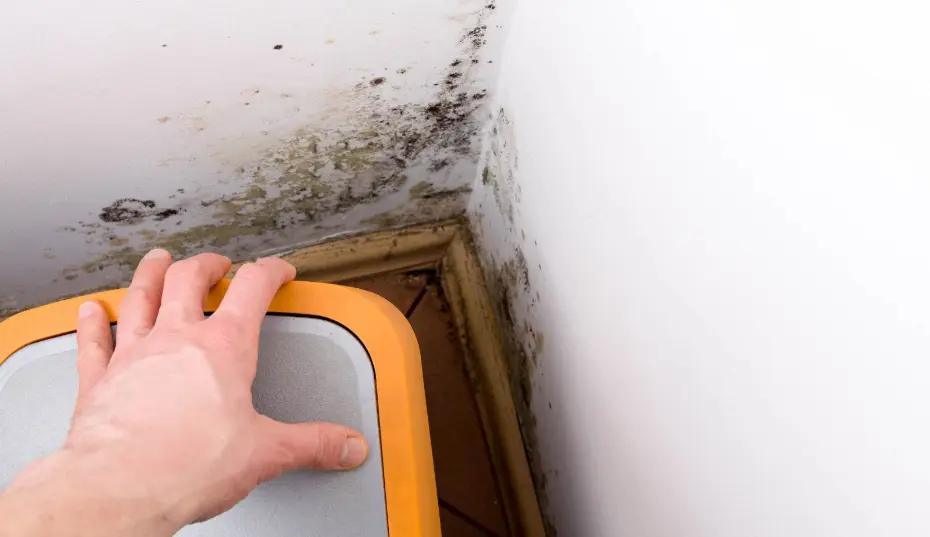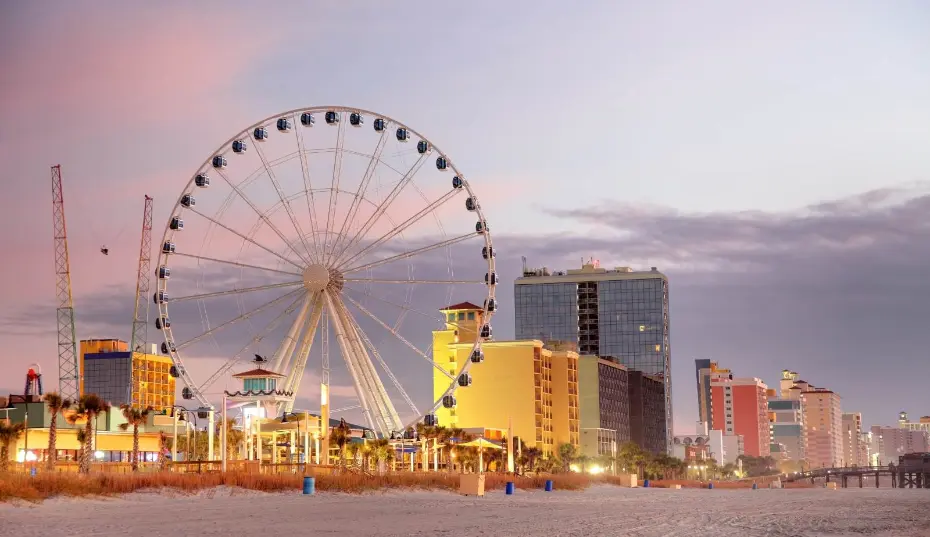Coastal homes, especially in areas like Myrtle Beach, SC, face unique challenges when it comes to mold growth. High humidity levels, frequent rainfall, and the proximity to water contribute to an environment where mold can thrive. Understanding the causes of mold in coastal homes and knowing how to effectively address them is crucial for homeowners seeking to maintain a healthy living environment.
Residents of Myrtle Beach often encounter mold due to the region's wet climate. Factors such as poor ventilation and water damage can exacerbate these issues, leading to potential health risks and property damage. Mastertech Environmental provides specialized services for mold inspection, testing, and remediation to help homeowners combat these challenges effectively.
By recognizing the environmental conditions that favor mold growth and implementing proactive solutions, homeowners can safeguard their properties. Mastertech Environmental offers insights and strategies for prevention and treatment, ensuring that coastal living remains enjoyable and safe.
Understanding Mold Issues in Coastal Homes
Mold growth presents unique challenges for coastal homes, particularly in areas like Myrtle Beach. The intersection of humidity, temperatures, and building materials creates an environment conducive to mold proliferation. Addressing these issues requires an understanding of mold itself, the environmental factors at play, and common types found in the area.
Defining Mold and Its Impact on Coastal Properties
Mold is a type of fungus that thrives in damp conditions, reproducing through spores that can affect indoor air quality. It typically feeds on organic materials, such as wood, drywall, and paper.
In coastal areas, mold can damage structural elements of homes, leading to costly repairs. Exposure to mold can also pose health risks, including respiratory issues and allergic reactions. This underscores the importance of proactive measures in mold prevention and remediation.
Why Coastal Environments Like Myrtle Beach Are at Higher Risk
Myrtle Beach's geographical and climatic conditions significantly increase the likelihood of mold growth. High humidity levels are prevalent in coastal regions, often exceeding 60%.
Frequent rain and the threat of hurricanes further compound the issue. When moisture infiltrates homes through leaks or inadequate ventilation, it creates ideal conditions for mold. Homeowners must remain vigilant about moisture control through dehumidifiers, proper ventilation, and regular maintenance.
Common Types of Mold Found in Myrtle Beach Homes
Several mold species are commonly found in Myrtle Beach homes, each posing different risks.
- Aspergillus: Often found indoors, it can lead to allergic reactions and respiratory issues.
- Cladosporium: This mold thrives on damp surfaces and can trigger asthma symptoms.
- Stachybotrys (Black Mold): Typically found in water-damaged areas, it releases mycotoxins that can be harmful.
Identifying and addressing these molds promptly is crucial to maintaining a healthy living environment. Regular inspections and immediate action in response to water damage can help mitigate these risks.
Primary Causes of Mold Growth in Myrtle Beach, SC
Myrtle Beach's coastal climate creates a perfect environment for mold growth. The combination of high humidity, water exposure, and inadequate ventilation significantly increases the risk of mold development in homes.
High Humidity and Moisture Exposure
Myrtle Beach experiences high humidity levels year-round. Moist air can saturate homes, especially in areas with little air circulation.
Key Factors:
- Average Humidity: The region often sees humidity levels above 70%.
- Daily Effects: Even on sunny days, moisture can accumulate indoors, particularly in basements and crawl spaces.
Mold spores thrive in moist conditions, feeding on organic materials like wood and drywall. Homeowners should monitor indoor humidity levels and use dehumidifiers to keep moisture beneath 50%.
Flooding and Water Intrusion
Heavy rainfall and storm surges can lead to flooding, a significant threat in coastal areas.
Impact of Flooding:
- Water Intrusion: Water can seep into basements or crawl spaces, creating ideal breeding grounds for mold.
- Standing Water: Even small amounts of standing water can quickly foster mold growth if not addressed.
Homeowners should check for any water leaks or cracks in foundation walls and promptly address these issues. Measures such as proper drainage and waterproofing can mitigate risks from flooding and excessive moisture intrusion.
Poor Ventilation Practices
Inadequate ventilation contributes to mold problems in Myrtle Beach homes.
Common Ventilation Issues:
- Lack of Airflow: Rooms without proper airflow can trap heat and humidity.
- Unventilated Attics: Attics that aren't ventilated properly can become hot and humid, encouraging mold growth.
To combat these issues, homeowners should ensure that areas like bathrooms and kitchens have proper exhaust fans. Regularly opening windows also helps promote air circulation and reduce humidity levels, which can support mold prevention efforts.
Identifying Mold in Coastal Residences
Mold can pose significant risks in coastal homes, particularly in humid environments like Myrtle Beach. Recognizing the signs of mold infestation, knowing the most vulnerable areas, and understanding the health impacts are crucial for homeowners.
Warning Signs of Mold Infestation
Identifying mold early is vital. Common warning signs include:
- Visible Mold Growth: Dark patches on walls or ceilings, often appearing in shades of black, brown, or green.
- Musty Odors: A damp, earthy smell can signal mold presence even if not visible.
- Water Damage: Stains or blooming paint can indicate moisture intrusion, supporting mold growth.
Regular inspections, especially after heavy rains or hurricanes, can help catch infestations early. Homeowners should be vigilant, examining hidden areas like basements and under sinks where mold often thrives unnoticed.
Areas Most Vulnerable to Mold in Coastal Homes
Certain parts of coastal houses are more susceptible to mold due to high humidity and water exposure. Key areas include:
- Bathrooms: High humidity levels from showers create a prime environment for mold.
- Kitchens: Leaky pipes or appliances heighten the risk of moisture accumulation.
- Basements and Crawlspaces: Often damp, these areas can harbor mold without proper ventilation.
Ensuring ventilation and addressing leaks promptly in these areas can significantly reduce mold growth risks.
Health Symptoms Related to Mold Exposure
Exposure to mold can lead to various health issues. Common symptoms include:
- Respiratory Problems: Coughing, sneezing, and difficulty breathing are prevalent among those sensitive to mold.
- Allergic Reactions: Symptoms can include itchy eyes, skin rashes, and sinus congestion.
- Other Symptoms: Fatigue and headaches may arise, especially with prolonged exposure.
Individuals with asthma or weakened immune systems should be particularly cautious, as they may experience intensified symptoms. Timely identification and remediation of mold can help mitigate these health concerns.
Effective Mold Prevention Strategies
Implementing effective mold prevention strategies is essential for maintaining a healthy living environment in coastal homes. By focusing on humidity control, proper drainage, and routine inspections, homeowners can significantly reduce the risk of mold growth in Myrtle Beach, SC.
Humidity Control Techniques
Maintaining optimal indoor humidity levels is crucial for preventing mold. Ideal humidity levels should be kept between 30% and 50%. Homeowners can achieve this by using dehumidifiers, especially during the humid summer months.
Regularly using air conditioning can also help reduce moisture. Ensuring proper ventilation in bathrooms and kitchens is important as well. Exhaust fans and open windows can assist in lowering humidity after cooking or showering.
Additionally, inspecting areas prone to moisture, such as basements and crawl spaces, for humidity issues can prevent mold before it starts.
Waterproofing and Proper Drainage Solutions
Effective waterproofing and drainage strategies minimize the risk of water intrusion. Ensuring that gutters and downspouts direct water away from the foundation is vital. Clogged gutters can lead to water pooling, potentially seeping into the home.
Applying waterproof sealants to basements and other vulnerable areas can provide an extra barrier against moisture. Installing sump pumps in basements is another effective solution for preventing flooding during heavy rains.
Grading the landscape around the home to promote drainage away from the foundation can further mitigate water-related issues. Proper landscape management, such as using mulch or gravel, can also reduce erosion and moisture retention near the house.
Routine Inspections and Maintenance Schedules
Establishing a routine inspection schedule is critical for early detection of moisture issues. Homeowners should check for leaks in plumbing, roofs, and exterior walls regularly.
Sealing any cracks in walls and around windows can prevent water infiltration, which is vital in coastal areas. Regularly inspecting HVAC systems ensures they operate efficiently and do not contribute to excess humidity.
Creating a maintenance calendar helps keep track of necessary checks like gutter cleaning, dehumidifier servicing, and landscape upkeep. This proactive approach can significantly reduce the likelihood of mold growth in coastal homes.
Professional Mold Remediation by Mastertech Environmental of Myrtle Beach
Mastertech Environmental of Myrtle Beach specializes in effective mold remediation solutions tailored to the unique challenges faced by coastal homes. Their expertise ensures a comprehensive approach that addresses both the immediate issues and underlying causes of mold growth.
Comprehensive Mold Assessment Services
Mastertech Environmental begins its process with a detailed mold assessment. Technicians inspect the property for visible signs of mold and moisture, identifying critical problem areas. Using advanced tools, they perform air quality tests and surface sampling to determine the extent of contamination.
The assessment includes evaluating ventilation systems, plumbing leaks, and moisture levels in walls. This thorough approach enables them to provide clients with a clear understanding of the mold problem and potential sources. This initial step is crucial for developing a targeted remediation plan that effectively addresses the specific situation.
Safe and Thorough Mold Removal Processes
The mold removal process employed by Mastertech Environmental prioritizes safety and efficiency. They use eco-friendly products and follow industry best practices to ensure safe mold removal. Technicians don protective gear and set up containment areas to prevent spores from spreading during the remediation.
Once containment is established, the removal process begins. Mold-affected materials may be safely discarded or treated, depending on the severity of the infestation. Dehumidification and air purification systems are utilized post-removal to ensure that the air quality is restored to safe levels, effectively minimizing the risk of future mold growth.
Benefits of Hiring Certified Local Experts
Hiring Mastertech Environmental offers several benefits for homeowners dealing with mold issues. Their certified and trained professionals understand the specific environmental factors that contribute to mold growth in Myrtle Beach. This local expertise allows them to quickly identify and address the underlying causes.
Additionally, by employing certified experts, homeowners ensure that remediation is conducted according to state regulations and industry standards. Clients can feel confident knowing they are receiving quality service backed by extensive training and experience. This not only addresses current mold problems but also helps prevent future issues, safeguarding the integrity of the home.
Long-Term Solutions for Mold-Free Coastal Living
Maintaining a mold-free environment in coastal homes requires strategic choices in design, ongoing education for homeowners, and sustainable maintenance practices. Each solution contributes to reducing mold growth here in Myrtle Beach.
Building Materials and Design Considerations
Selecting the right materials is critical for preventing mold growth. Homeowners should opt for mold-resistant products such as drywall, paints, and insulation. These materials help inhibit mold development by repelling moisture.
Design elements are equally important. Homes should incorporate adequate ventilation systems, such as exhaust fans in bathrooms and kitchens, to maintain air circulation. Additionally, elevated foundations can prevent water accumulation, crucial in coastal areas.
Using breathable exterior finishes can also enhance the home’s resistance to moisture. The combination of these strategies allows for a more resilient structure against mold intrusion.
Importance of Educating Homeowners
Education plays a vital role in mold prevention. Homeowners should understand the conditions that promote mold growth, such as humidity and poor ventilation.
Workshops and informational sessions can provide crucial insights into proactive measures. For instance, knowledge about regular inspections and recognizing early signs of mold can prevent larger infestations.
Homeowners should also learn how to manage their indoor environments. Monitoring humidity levels and utilizing dehumidifiers can significantly reduce risk.
Sustainable Home Maintenance Practices
Implementing sustainable maintenance routines is essential for long-term mold prevention. Regular cleaning of gutters ensures proper water drainage, while timely repairs of leaks maintain the integrity of the home.
Seasonal inspections can help identify vulnerable areas. Homeowners should check for signs of moisture, especially in basements and crawlspaces.
Additionally, a consistent schedule for cleaning HVAC systems can limit mold spores circulating indoors.
Incorporating these sustainable practices fosters a healthier living environment, ensuring that homes remain mold-free all year round.
Understanding Insurance and Legal Responsibilities
Insurance policies and legal requirements play crucial roles in addressing mold issues in coastal homes. Property owners in Myrtle Beach must be aware of their coverage options and obligations to manage potential mold problems effectively.
Mold Coverage in Coastal Home Insurance Policies
Mold coverage varies significantly among insurance policies. Many standard homeowners' insurance plans may provide limited coverage for mold damage. This often includes damage caused by sudden incidents, such as a burst pipe, but excludes mold growth resulting from long-term water intrusion.
Homeowners should examine their policies closely. The following aspects are essential:
- Coverage Limits: Determine the maximum amount the insurance company will pay for mold damage.
- Exclusions: Understand what situations specifically lead to denials of coverage.
- Optional Add-Ons: Some insurers offer riders for enhanced mold protection.
Reviewing these factors can assist property owners in selecting the right insurance tailored to their needs.
Legal Obligations for Myrtle Beach Property Owners
Property owners in Myrtle Beach have specific legal responsibilities regarding mold management. Under South Carolina law, landlords must ensure that rental properties are habitable and free from health hazards, which includes mold.
Key legal aspects include:
- Disclosure: Landlords are required to disclose any known mold issues to potential tenants.
- Maintenance: Property owners must regularly inspect properties and address moisture issues immediately to prevent mold growth.
- Tenant Rights: Tenants can take legal action if mold problems are ignored, affecting their health or living conditions.
Understanding these responsibilities can help property owners avoid legal issues and protect both their investment and the well-being of tenants.
Frequently Asked Questions
Homeowners in Myrtle Beach face unique challenges regarding mold in coastal environments. Understanding prevention methods, common causes, and effective solutions can greatly help in managing mold issues.
What steps can homeowners take to prevent mold formation in coastal properties?
Regular maintenance is essential for preventing mold. Homeowners should ensure proper ventilation in attics, basements, and crawl spaces. Using dehumidifiers in high-humidity areas can also help keep moisture levels in check.
What are the common causes of mold growth specific to the Myrtle Beach area?
The coastal climate of Myrtle Beach creates an environment conducive to mold growth. High humidity levels, combined with warm temperatures, promote mold proliferation. Additionally, flooding and water leaks from heavy rains can exacerbate mold issues.
As a homeowner in Myrtle Beach, what solutions are recommended for addressing mold issues effectively?
Homeowners are encouraged to address mold issues promptly by using professional mold remediation services. Cleaning affected surfaces with mold-killing solutions can help. Additionally, repairing leaks and improving drainage around the home will minimize moisture accumulation.
How does the coastal climate in Myrtle Beach contribute to mold issues in residential areas?
Myrtle Beach's coastal climate is characterized by high humidity and significant rainfall. These conditions create an environment where mold can thrive, especially in poorly ventilated spaces. Moisture from the ocean can also contribute to the overall humidity levels in homes.
What should residents know about the health implications of mold exposure in their homes?
Exposure to mold can lead to various health issues, particularly respiratory problems. Individuals with allergies, asthma, or weakened immune systems may experience more severe reactions. Residents should be aware of symptoms such as coughing, sneezing, and skin irritation.
What are the legal responsibilities of landlords regarding mold remediation in Myrtle Beach rental properties?
Landlords in Myrtle Beach are required to maintain safe living conditions, which includes addressing mold issues. They must respond to tenant complaints regarding mold in a timely manner. Failure to act on mold problems may result in potential liability for health-related issues.


